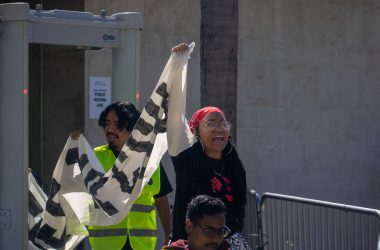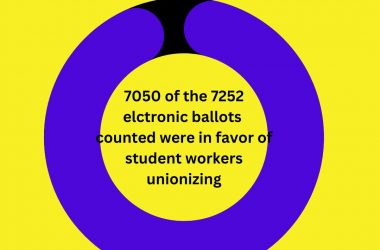By: Kennedy Trinkaus and Brelio Lozano, Staff Writers
The California State University system has adopted a new investigative model for Title IX sexual assault proceedings that has been implemented on March 29, across all universities in the system.
This model will give the right to both parties to cross examine each other through a hearing officer during a live hearing, required by state law.
If a case is not settled, a hearing is scheduled. The complainant and respondent will identify witnesses and have questions that they want the designated hearing officer to ask of the other party and witnesses. The previous policy was centered on a single investigator/adjunctor model rather than an investigation/hearing model.
“The [old] process did not include a hearing,” said Linda Hoos, the CSU Statewide Title IX compliance officer. “Under the previous procedure, the investigator would make factual findings after the investigation based on the investigator’s interviews of the witnesses and review of the evidence.”
The California Court of Appeals ruled that students accused of sexual misconduct who face severe discipline at any CSU have the right to a hearing. As of March 29, the Chancellor’s Office released these revisions to Title IX.
The new changes to the investigative model has been welcomed by some faculty.
“I actually support having the hearing process … I support the process of having a hearing because there is a lot at stake for both the complainant and respondent, ” said Shira Tarrant, a professor in women’s gender and sexuality studies at LBSU.
Students are not required to have a hearing process, rather, it is an option when cases cannot be resolved amongst each party.
“When there is a hearing procedure on campus you’re not sending someone to prison… you’re educating … it’s not intended to be an adversary hearing process,” Tarrant said.
Furthermore, the Long Beach State Title IX website states the update only applies to cases where the respondent is accused of sexual misconduct as defined by Executive Orders 1096/1097, the respondent faces suspension or expulsion, and the credibility of any party or witness is central to the finding of whether the accused student engaged in Sexual Misconduct.
Larisa Hamada, LBSU director of Equity and Diversity, said that for many cases, the credibility ends up being the focus of the investigations, due to little evidence or witnesses.
“Sometimes there won’t be a lot, or even no witnesses during the time of the alleged assault or rape occured,” Hamada said. “A lot of these cases end up really focused on the credibility of both parties … and that’s why the CSU system has had to change their policies.”
Hamada also noted the difficulty in keeping up with the changes.
“The challenge we are seeing now is that through litigation, the law is literally changing on a monthly basis,” Hamada said. “I think it can be difficult where our campus and as well as other many campuses are just trying to figure out how to provide the best services to students while the law keeps changing.”




